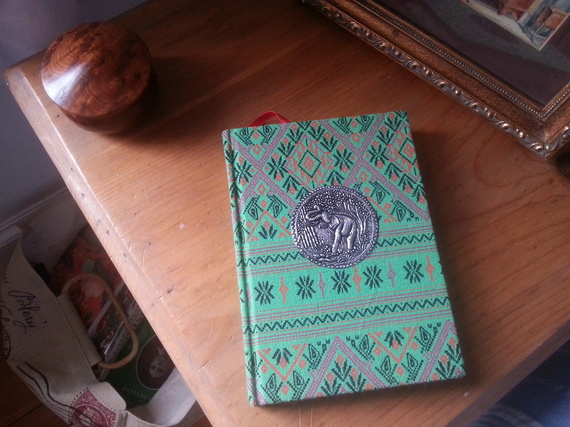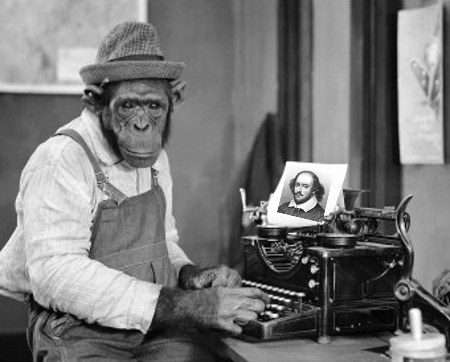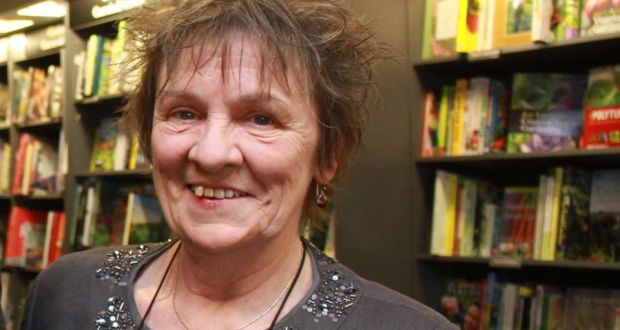
3 Ways to Price Your Work for Your Freelance Writing Business
entrepreneur.com – Thursday March 17, 2016

In Moonlighting on the Internet, internet entrepreneur Shelby Larson presents the most reliable and proven ways you can create an extra paycheck for the short term and establish a continual revenue stream for the long term with your own website. In this edited excerpt, Larson offers tips on how to price your freelance writing projects.

You Can't Write Without a Leap of Faith
huffingtonpost.com – Wednesday March 16, 2016

The most important thing every writer has to do is take a leap of faith.
What does that mean, exactly? That, no matter how stuck you are at the start of a book, or how unwieldy your manuscript becomes as you wade deeper into it, you have to believe in yourself enough to keep writing.

Top 10 tips on how to write like William Shakespeare
theguardian.com – Tuesday March 15, 2016

When I started writing the My Book of Stories series, my intention was to inspire young people to write their own stories by using plot ideas and characters from some of the best stories ever written. Looking at Shakespeare’s canon I realised that he covered almost every variant of story you might ever think of. From power struggles to love stories, adventures in the wilderness to life at court, you can find all of life in his plays, so here are my top 10 tips on how to write your own Shakespearean tales, in Shakespeare Week.

Should You Self-Publish or Pursue a Mainstream Publisher?
huffingtonpost.com – Monday March 14, 2016

Over the past month, I have fielded numerous inquiries about book development and promotion, so I figured it would be helpful to share with you my tips for both. In this first installment, I'll focus on the starting point question of whether to self-publish or pursue a mainstream publisher. There is really no right or wrong answer here. Instead, there are pros and cons of each route, along with numerous variables to consider. Here are some of them:

The New Indie and the Self-Publishing Revolution
publishersweekly.com – Saturday March 12, 2016

Independent publishing doesn't mean what it used to. When I started in publishing in 2000, indie publishers were simply non-corporate, or independently owned. The label was reserved for small traditional presses that wore the indie label with pride because of what “indie” signifies, then and now—a spirit of independence, of course, but also of not needing approval or to operate within the parameters of the existing paradigm.
Writing Your Blurb or Bio: The Essential Points
huffingtonpost.com – Thursday March 10, 2016
Your blurb or bio is a short, concise, effective introduction and description of yourself. It can be used and inserted in myriad ways: for your company profile, as an introduction at meetings or presentations, on social media sites such as LinkedIn, for your articles, blogs or books, and whenever and wherever you need a pithy, interesting and informative description of yourself. The essential characteristics of effective and memorable blurbs are:

Monkeys, Shakespeare, Writing and Me
huffingtonpost.com – Thursday March 10, 2016

There's an adage that says, "If you put 100 monkeys with typewriters in a room long enough, eventually they'll write Hamlet." It requires just a nanosecond of reflection to realize that the monkeys wouldn't actually be writing. They'd merely be typing. But the idea is they'd be typing fast and furious and eventually create something worth reading.
This is the biggest year I've ever experienced as a writer and there are indeed times when I feel like the aforementioned monkeys. I have four books being published in 2016 -- one each in January, March, April and May. When I mention the four books in conversation, people often regard me with incredulous shock. How is such a thing possible? Do you write non-stop? Did you write all four books simultaneously? Were you actually just monkey-typing?

Evelyn Conlon: prize culture devalues art of writing
irishtimes.com – Wednesday March 9, 2016

I am saddened for the apprentice writers who think that the only way their work can be judged is by a prize listing. What an awful thing for the industry to subject writers to.
My fear is that we’re in danger of losing the challenge of [the independent bookshop]. What happens now is that the window can be bought and that all that exciting innovative work has been bulldozed by giddy marketing. Too many people now make straight for the prize-winning shelf. I am not averse to the notion of the occasional prize, and yes I understand that it is a method of bringing attention to the as yet unknown, but when the bookshop experience seems like you’ve been tipped into a tombola then clearly we have lost sight of the art of finding our own books.

Save dragons, save books! Three authors give tips on children's writing
theguardian.com – Wednesday March 9, 2016

It’s a perennial bugbear among children’s writers that every other writer thinks it’s an easy thing to do when, in fact, children are among the most discerning readers, with an intimate relationship with the on-off switch. Three leading authors will be passing on the tricks of the trade in a Guardian Masterclass on Sunday, 20 March. We asked Philip Ardagh, author of the Eddie Dickens series; How to Train Your Dragon author Cressida Cowell; and Laura Dockrill, author of the Darcy Burdock books, to explain the challenges and the rewards of specialising in literature for young people. They also give some useful tips for anyone hoping to follow them into this most demanding of areas.

For writers: To agent or not to agent?
wnd.com – Wednesday March 9, 2016

Writers who want to be published (or who have already been published) are constantly in a state of turmoil trying to answer the question: Do I need an agent?
Get the free newsletter | Submit a news item or article | Get Writers' News for your website





